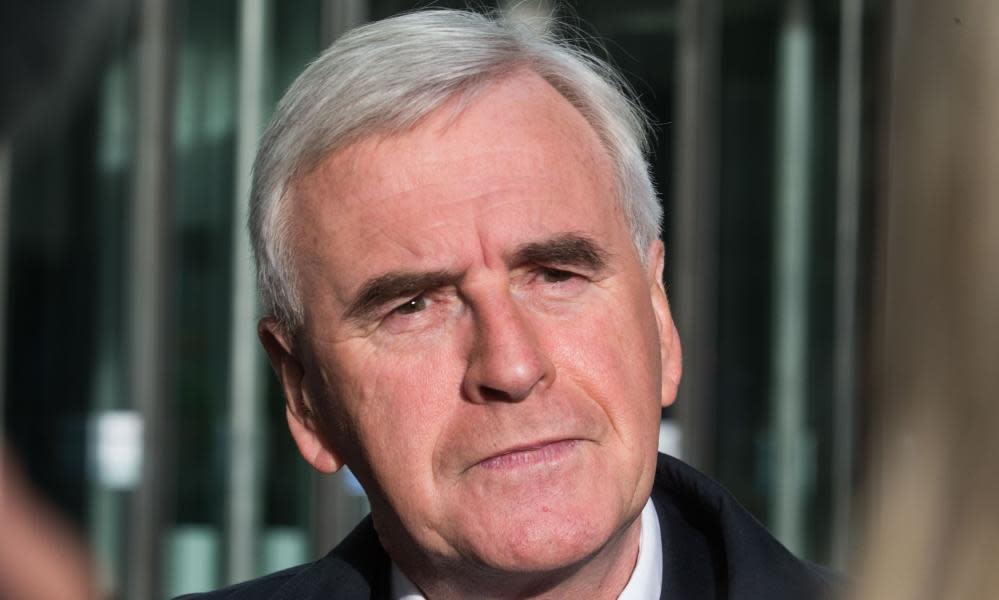Labour's extra borrowing would pay for itself, says McDonnell

The shadow chancellor, John McDonnell, has refused to put a figure on the cost of Labour’s plans for extra borrowing and dismissed being challenged on specific numbers as “trite journalism”.
Asked nine times by BBC Radio 4’s Today presenter Mishal Husain how much extra it would cost to service public debt under Labour, McDonnell refused to give a figure. Instead he repeatedly claimed that extra borrowing would “pay for itself”.
The exchange came after McDonnell was forced to admit he did not know how much the UK was paying to service current debt, during an interview with the BBC’s Daily Politics.
Asked about that interview, McDonnell said: “The type of journalism where you go into an interview, and someone asked you a question on a particular figure is a trite form of journalism. That’s why we have iPads and that’s why we have advisers, etcetera.”
The mention of iPads was likely a reference to an interview given by the Labour leader Jeremy Corbyn before the last election, in which he was caught consulting one as he struggled to answer a question about Labour’s manifesto plans for childcare costs.
In Thursday’s interview, Husain and McDonnell had a protracted exchange on the cost of Labour’s borrowing plans. In answer to the fifth question on how much Labour’s plans would add to the £48m it currently costs to service national debt, McDonnell said: “We are talking about it paying for itself, a one-to-one multiplier. That’s the standard analysis by the OBR and others. When you invest, you grow the economy and as a result of that you cover your costs.”
And when Husain asked McDonnell for the ninth and final time to give a figure and clarify how Labour’s plans could pay for themselves, he said: “Because immediately that infrastructure puts more people back into work. They pay their taxes and as a result of that you are able to cover your cost. Simple as that.”
Earlier McDonnell gave a vague answer on how long it would take Labour to return productivity to 2%. He said: “These things are always difficult to predict but I believe we can make a start within a lifetime of a parliament to start tackling the productivity crisis that we’ve got.”
Speaking to Sky News, McDonnell said the budget had failed to tackle the funding crisis facing public services. “This budget was more about Philip Hammond saving his job than about tackling the real underlining issues in our economy,” he said.
He added: “If you talk to frontline workers in the public service, I don’t think they’ll be particularly happy. The NHS only got just over half what they asked for. So that means we are going to have a real problem over the next couple of years. Remember the chief executive of the NHS said if he didn’t get the full amount of money we could have waiting lists rise into 5 million.”
On nurses’ pay, he said: “For nurses there was a promise of sorting out their pay, we now discover this morning that negotiations will go on, but it looks as though those negotiations and any pay increase is going to be dependent on an assault on their terms and conditions. And for the rest of the public sector workers there was nothing.”

 Yahoo News
Yahoo News 
